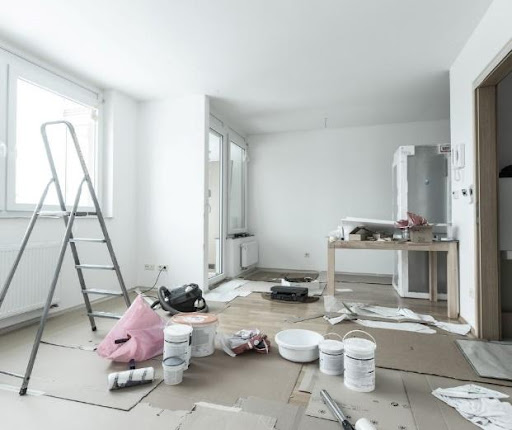In the wake of the pandemic, many Americans took advantage of low interest rates (and the money they normally spent on entertainment and travel) and made some significant investments into their homes.
By the numbers: A recent survey by Porch.com revealed that three out of four surveyed homeowners had completed “a major project since the start of the COVID-19 pandemic.” The number of homeowners extending or adding additions to their abodes increased by 52%. HomeAdvisor reported that homeowners in 2020 spent on average $745 more on home improvement projects than in 2019.
Home improvement projects can add to the value of your home. So, if you’ve made any recent updates, you should call your insurance agent. (Seriously, the before and after photos of your new kitchen on Instagram can wait.)
We checked in with Bob Buckel, vice president of product management at Erie Insurance, to ask what homeowners should know about coverage limits and home improvement projects.
Q: Why is it important to keep my agent in the loop?
A: Because nobody likes surprises, especially when a claim happens. So, the better information we have on your home, the easier it will be to settle a claim.
When your agent writes the policy, they gather a lot of information about your home ‒ things like:
- Square footage
- The number and quality of bathrooms
- Whether there’s a finished basement
- Type and age of roof
And so on…
They use this to work with you on the right amount of coverage to buy. (Learn more about what affects the price of your homeowners insurance.) This is typically an estimate of what it would cost to rebuild your home using the same square footage and materials. When a claim occurs… if you’ve made significant upgrades, there may not be enough coverage to rebuild your home to its current state.
When doing a home improvement project, your agent can work with you to recalculate an estimated cost to rebuild your home and make sure the coverage on the policy is tailored specifically to your needs.
Q: How could this play out in real life?
A: Let’s say you have a homeowners insurance policy with a coverage amount of $200,000. This is the amount that you and your agent agreed to that reflects the best estimate of what it would take to rebuild your home after a total loss.
Then you finish a portion of your basement for $20,000 ‒ and do not advise your agent. If you were to have a total loss, your $200,000 of coverage was selected with the understanding that your basement was not finished. So when it comes time to rebuild your home, there would only be $200,000 available to rebuild, and that may not be enough to include a finished basement.
Also, some homeowners insurance policies have provisions in them that allow the insurance company to deny or limit coverage for improvements that the insurance company was not made aware of. So it’s always best to be proactive and let your agent know if anything big has changed.
Q: The price of wood is sky high right now! What if I need to rebuild after a claim, but the price of construction materials goes up? Can my homeowners insurance cover the difference?
A: The cost of construction materials can vary quite a bit from year to year. For example, during the pandemic, the cost of lumber has increased significantly ‒ over 100% in some areas.
Taking that into account: Let’s say you selected $200,000 of coverage like in the example above. But when the claim happens, the cost of lumber is much higher. A March 2021 article in Fortune about high lumber costs said current lumber prices can add at least $24,000 to the price of a newly constructed single-family home.
If you had to rebuild your entire home, where would that additional $24,000 come from?
Here’s the good news: With Guaranteed Replacement Cost1, ERIE will pay to rebuild your home without limiting it to the amount of coverage listed on the policy. This also becomes a major issue during catastrophic events like hurricanes, tornadoes and wildfires. When large numbers of homes are damaged or destroyed, the cost of building materials increases dramatically due to supply and demand. So due to no fault of the homeowner or the agent, the house ends up being underinsured.
With Guaranteed Replacement Cost, there’s no stress. If it’s a covered loss and costs run high, ERIE will pay whatever the difference is. Your home is one of the biggest investments you can make. And whether you build a backyard oasis, add some square footage or put up a new fence… it’s worth making sure your investment is protected.
Source: https://www.erieinsurance.com/blog/home-insurance-renovations



